Basic measurement concepts Worksheets for Ages 4-5
8 filtered results
-
From - To
Discover engaging Basic Measurement Concepts worksheets designed specifically for children aged 4-5. Our carefully crafted activities introduce young learners to essential measurement skills in a fun and interactive way. With colorful visuals and relatable themes, children explore concepts like length, weight, and volume while enhancing their critical thinking and problem-solving abilities. These worksheets not only build a strong foundation in measurement but also promote fine motor skills and hand-eye coordination through hands-on activities. Perfect for homeschooling, classroom use, or additional practice at home, our resources are perfect for nurturing curiosity and a love for learning in early childhood. Explore, measure, and grow!
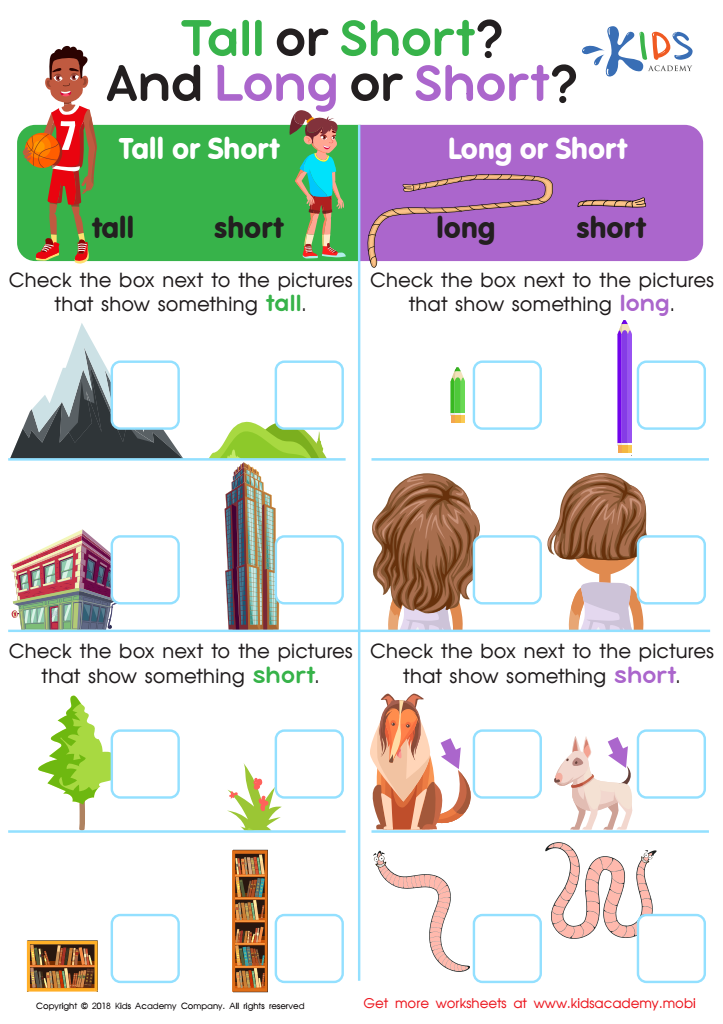

Tall or Short and Long or Short? Worksheet
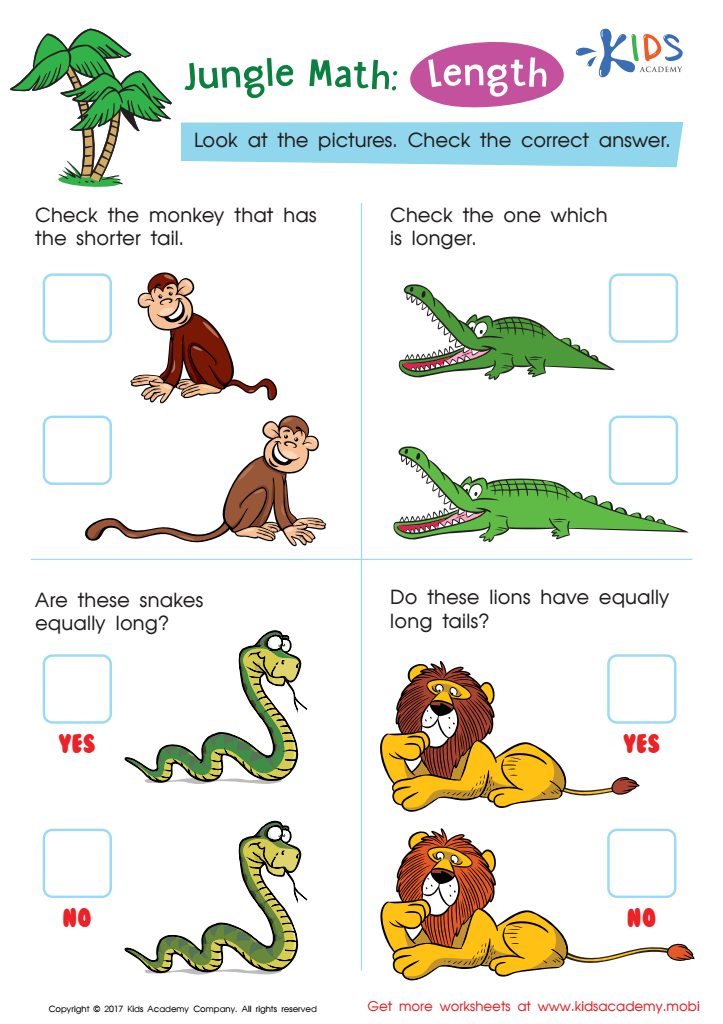

Which One Is Longer - Length Worksheet
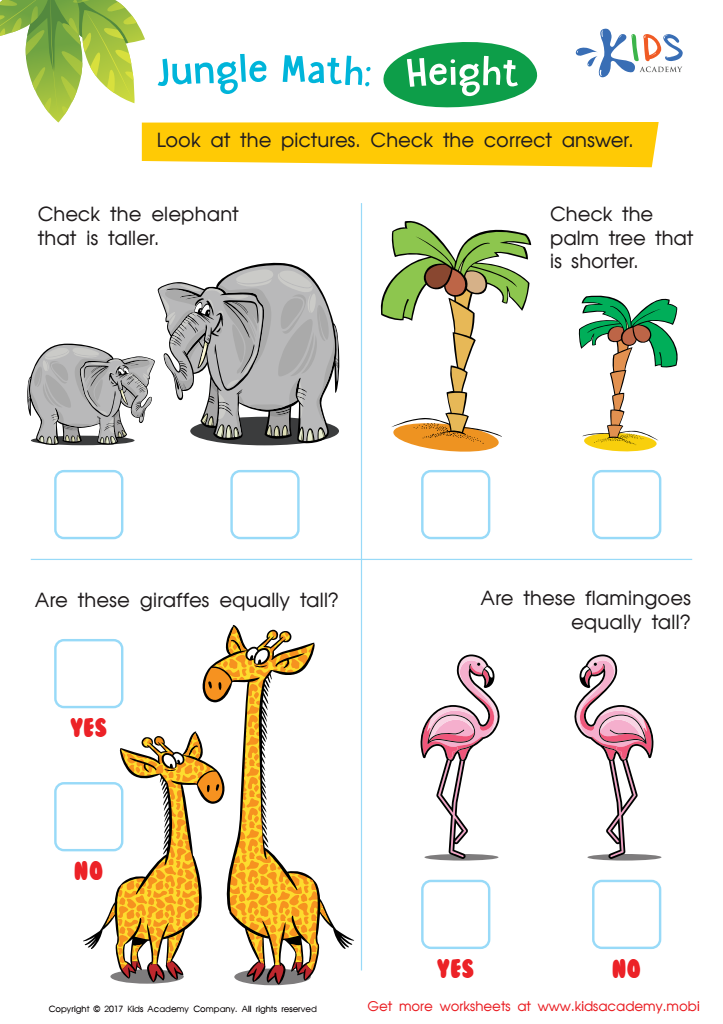

Which Is Taller Worksheet
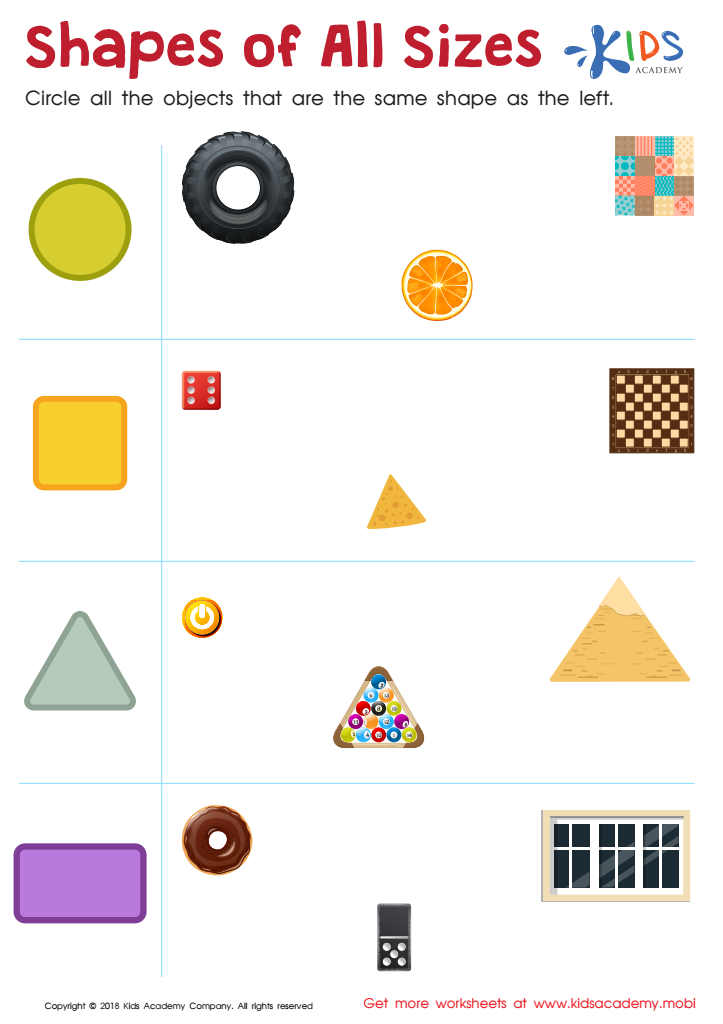

Shapes of All Sizes Worksheet
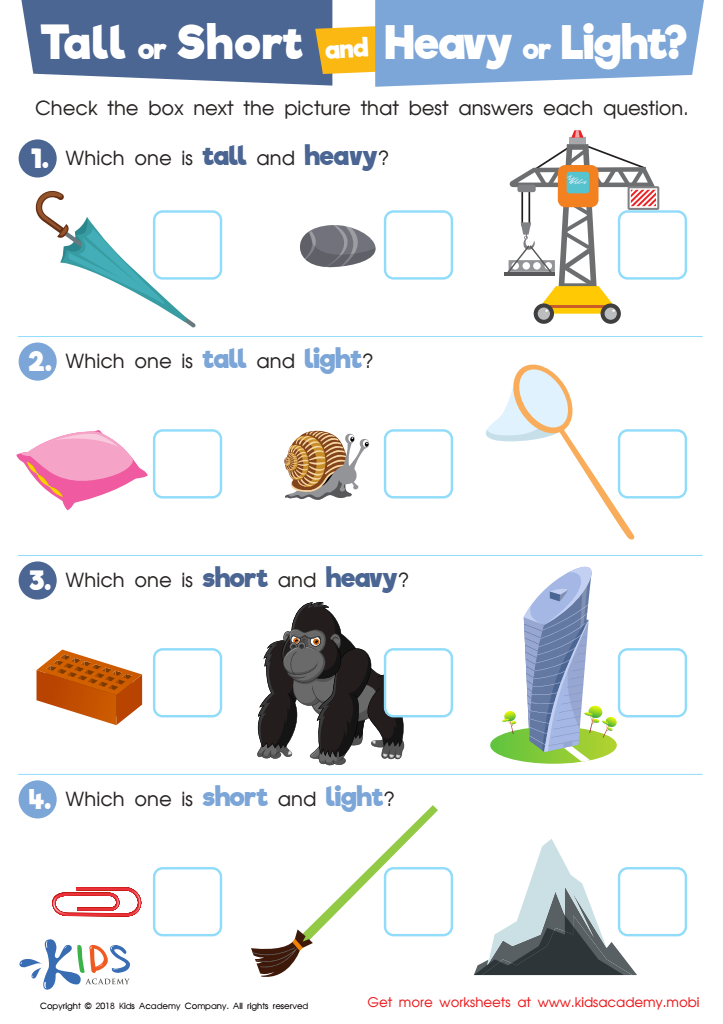

Tall or Short and Heavy or Light? Worksheet
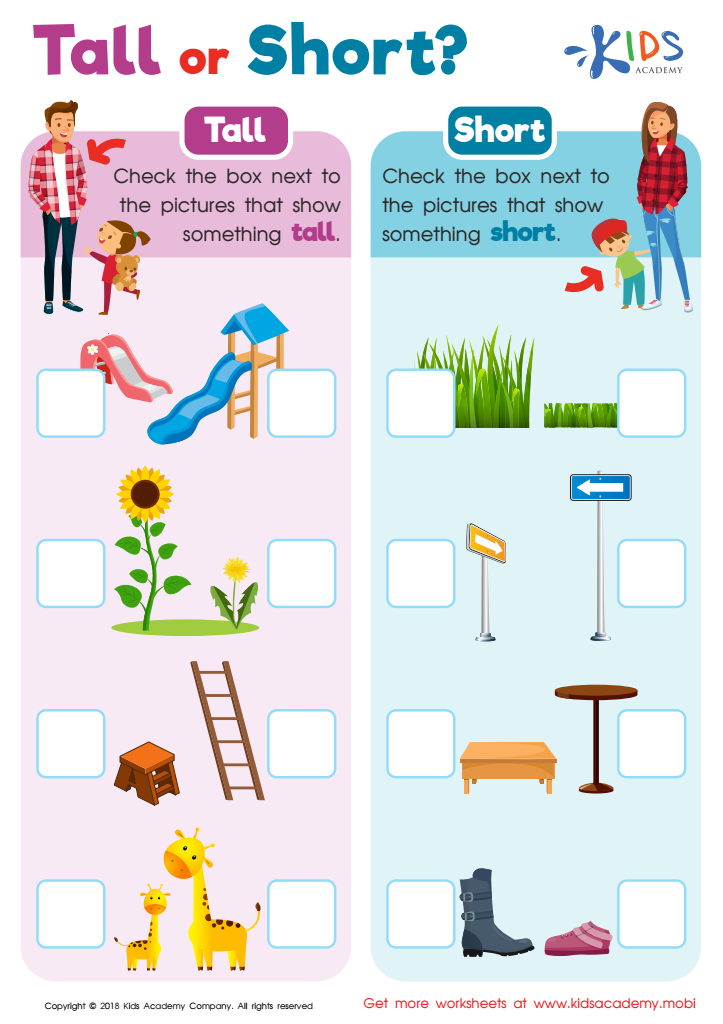

Tall or Short? Worksheet
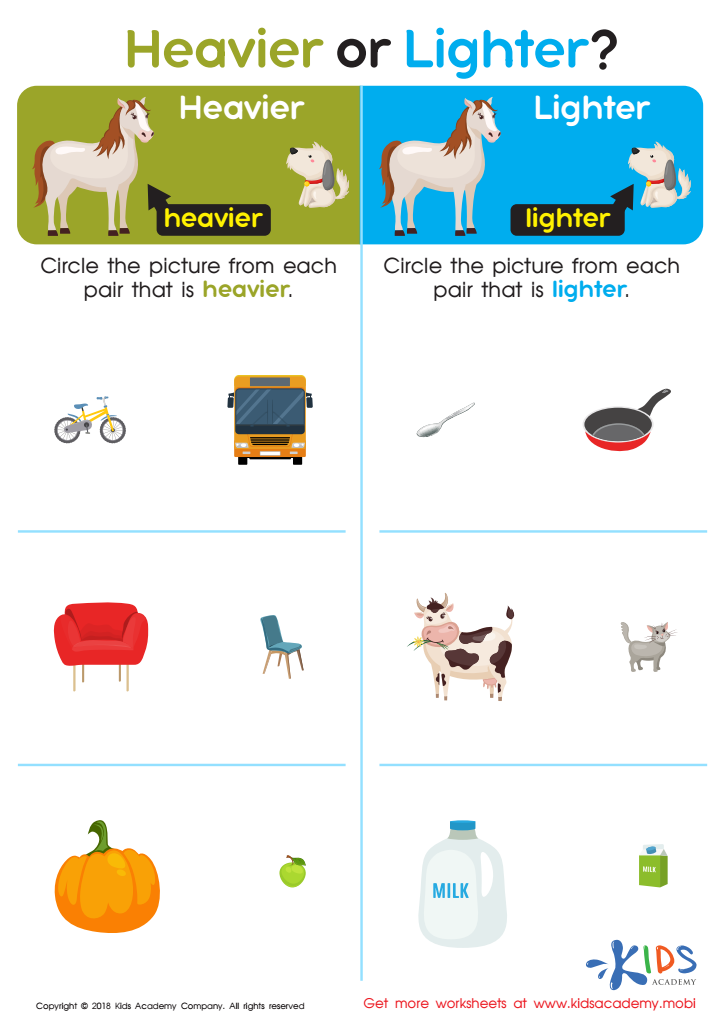

Heavier or Lighter? Worksheet
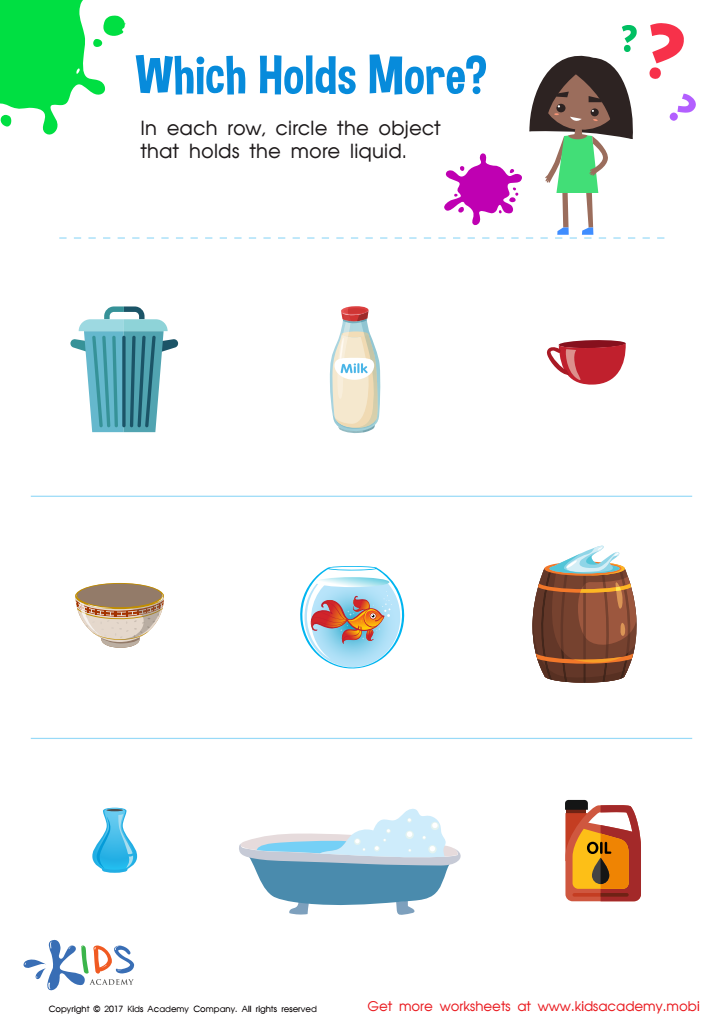

Which Holds More: Capacity Worksheet
Parents and teachers should prioritize basic measurement concepts for children aged 4-5 because these foundational skills set the stage for future learning in mathematics and critical thinking. Understanding measurement helps young children make sense of their world. For instance, they learn to compare lengths, weights, and volumes, which enhances their observational skills and fosters logical reasoning.
Engaging with measurement concepts can be fun and practical, as children can measure everyday items using non-standard units like blocks, or standard units such as cups for cooking. This not only makes learning interactive but also helps children grasp abstract concepts through tangible experiences. Additionally, developing spatial awareness and vocabulary associated with measurement encourages confidence in problem-solving situations.
Incorporating measurement into daily activities also supports cognitive development; it aids in fostering skills such as counting, categorizing, and estimating. Ultimately, early exposure to measurement lays a necessary groundwork for later subjects like science and engineering and prepares children for academic success. Therefore, parents and teachers should care about integrating basic measurement concepts into play and learning activities to nurture well-rounded, curious, and competent young learners.
 Assign to My Students
Assign to My Students


















